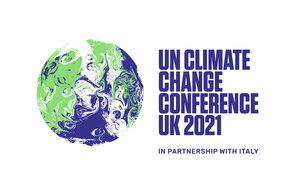UK and India deepen work on climate change on the road to successful COP26
Press release
UK and India agree urgent action to tackle climate change during leader-level call

- UK and India agree joint roadmap including plans to combat climate change by 2030, as Prime Ministers meet virtually
- It includes new collaboration on clean energy transition and protecting forests, and joint leadership to develop resilient infrastructure in climate vulnerable countries
- The roadmap will support global efforts to limit global temperature rises and achieve an ambitious outcome at COP26
The UK and India agreed on urgent action to tackle climate change through new, shared commitments during today’s leader-level call.
Prime Minister Boris Johnson and Prime Minister Narendra Modi signed off on a new shared roadmap during their virtual meeting that includes measures to help limit global temperature rises and support the communities most vulnerable to the impact of climate change.
They reaffirmed their personal commitment to work together for an ambitious outcome at the COP26 climate summit in November and sustained action beyond.
COP26 President-Designate Alok Sharma said:
The UK and India share a longstanding partnership and I am greatly encouraged by the steps we have taken today to bolster our joint efforts on tackling climate change.
If the world is to become net zero by the middle of the century and keep 1.5 degrees in reach, everyone must raise their ambition within this decade and work together to make real change for a cleaner, greener planet.
I am proud of the close collaboration on this crucial issue which our two countries have forged, especially during this very difficult time for India as it battles with COVID.
The roadmap sets out an ambitious agenda for UK-India collaboration on fighting climate change, including:
-
A new partnership on clean energy transition, which will drive progress on development of renewables like offshore wind, improved energy efficiency and storage, and advances in electric mobility. Both countries also committed to collaborating on green hydrogen.
-
Jointly launch a new global Green Grids Initiative at COP26 for countries to work together on interconnected grids for renewable energy, to help deliver India’s vision of One Sun One World One Grid
-
Joint action through the Coalition for Disaster Resilient Infrastructure (CDRI), which the UK and India co-chair. This will support Small Island Developing States to prepare for the impacts of climate change by bolstering their infrastructure.
-
Positioning the UK and India as global leaders on biodiversity through strengthening collaboration to protect and restore nature, including through a new joint partnership on forests. This will strengthen how we share expertise and information and accelerate a global transition to more sustainable supply chains by bringing together producer and consumer countries of forest risk commodities to share ideas and take action.
-
The two sides will explore the possibility of enhanced partnerships with major private finance leaders, including with the Climate Finance Leadership Initiative, to mobilise both public and private finance for green development.
-
A new phase of collaboration on the India Energy Security Scenarios Calculator initiative, to support climate policy and planning.
India and the UK have also welcomed climate action by businesses and encouraged other companies to do the same. Businesses who have recently made Net Zero commitments through the UN’s ‘Race to Zero’ campaign include the Neev Fund, Engineering Export Promotion Council of India, Gayam Motor Works, M/s Claro Energy Ltd, Commonwealth Inclusive Growth Services Ltd, Evolve India, Suryadesh, Rolls Royce, Diageo and Grundfos Pumps India Pvt. Ltd.
Ends.
Published 4 May 2021
